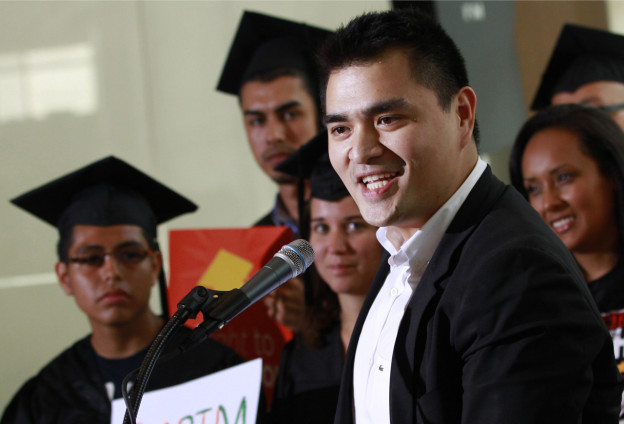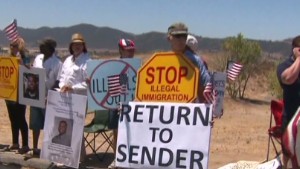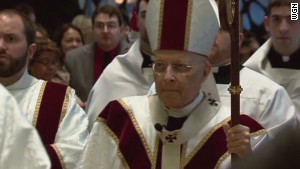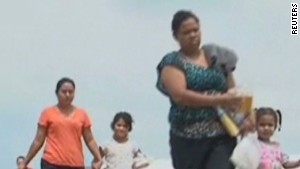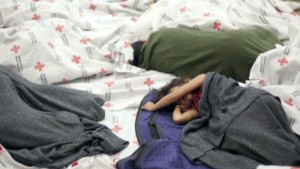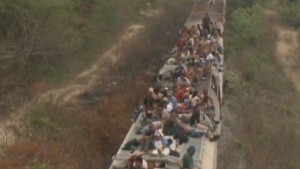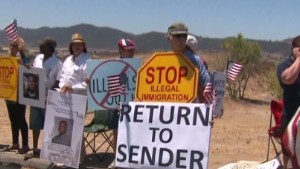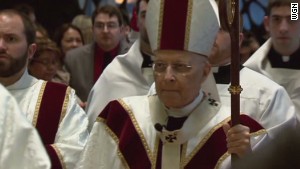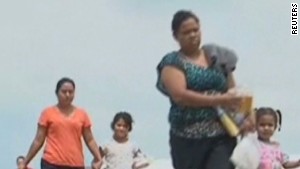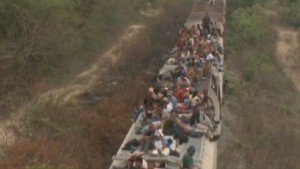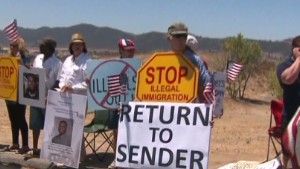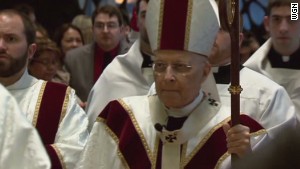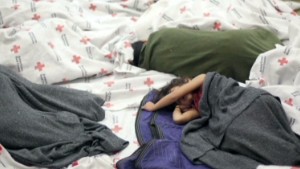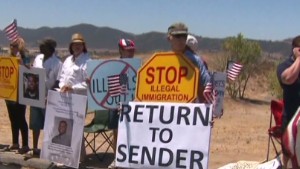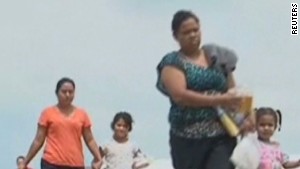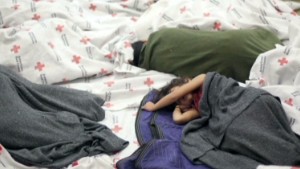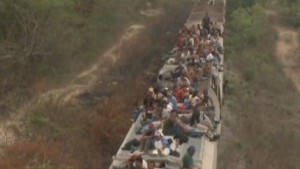Officials from California to Vermont, reacting to images of immigrant children sleeping in crowded conditions, are offering them shelter even as fellow lawmakers, sometimes in the same state, oppose the move.
As 1,000 Texas National Guard troops under orders from Governor Rick Perry move to secure the state’s border with Mexico, Dallas County is awaiting word on whether the federal government will send children to an abandoned warehouse and school in Dallas, and a former school in Grand Prairie.
More from Bloomberg.com: Obama Seen Gaining on Putin as U.S. Prods EU on Sanctions
“Overall, people want to help,” said Elba Garcia, a county commissioner. “They understand a lot of these kids are refugees. We are waiting for them to tell us which site has been selected and for them to select a contractor to run the site.”
About 57,000 children fleeing gangs and drug cartels in Guatemala, El Salvador and Honduras have crossed the U.S. border illegally since October and turned themselves in to authorities. The deluge led to photos of motherless immigrants sleeping in crowded facilities and left the federal government scrambling to find housing for the children while they await legal proceedings.
More from Bloomberg.com: Russian Billionaires in ‘Horror’ as Putin Risks Isolation
With 3,000 more unaccompanied children expected to reach the U.S. border by the end of September, some governors, mayors and county officials are scouring their communities for potential housing options and asking charities for assistance. Others who oppose illegal immigration want the children quickly returned to their home countries and are passing resolutions banning them from local communities and denying permits to convert their facilities into youth shelters.
Secure Shelters
Overtures of help are coming in response to requests the federal government sent communities nationwide asking if they could provide 90,000 square feet (8,361 square meters) of space in anything from military facilities to unused shopping malls, for as much as four months, to accommodate as many as 1,000 children. The youths will stay in secure shelters while the Obama administration searches for relatives.
More from Bloomberg.com: Obamacare Aid for Plan Buyers on U.S. Exchange Overturned
“It became clear to us, both from the reaction by the Department of Health and Human Services to our offers and what we were reading and seeing going on across the country, that welcoming the children was kind of unusual,” said Syracuse, New York, Mayor Stephanie Miner.
“So in order to expedite the process, I sent a letter to President Obama saying we stand ready to help as this crisis moves forward,” Miner said. She’s awaiting a second federal inspection of a former convent campus for use as housing.
Temporary Facilities
Some of the children are now staying in about 100 short-term shelters across the country and in temporary facilities at Joint Base San Antonio Lackland, Texas; Naval Base Ventura County-Port Hueneme, California, and Fort Sill, Oklahoma, according to the U.S. Health and Human Services Department.
As lawmakers in California, New York and Massachusetts offered aid to immigrant children for the first time, governors in Arizona and Nebraska complained that the Homeland Security Department didn’t notify them before sending unaccompanied minors to their states.
Republican governors from Alabama, Kansas, North Carolina, Pennsylvania, Utah and Wisconsin yesterday sent a letter to Obama saying that “the failure to return unaccompanied children will send a message that will encourage a much larger movement towards our southern border.”
“We are concerned that there will be significant numbers who will end up using the public schools, social services and health systems largely funded by the states,” the governors said.
Spending Package
As the political battle over what to do with the children continued, Senate Democrats unveiled an emergency spending package late yesterday that would provide $2.7 billion to aid in what Obama has called a “humanitarian crisis.” The president previously requested $3.7 billion in additional funds. Congress adjourns for an August break in two weeks.
The federal government will announce facilities in various states when they are identified as viable options, Kenneth J. Wolfe, a spokesman for the Health and Human Services Department, said by e-mail.
“While only a few facilities will ultimately be selected,” he said, “a wide range of facilities are being identified and evaluated to determine if they may feasibly provide temporary shelter space for children.”
Thousands of children between the ages of 3 and 17 are in limbo because the federal government isn’t set up to provide housing, food and other services to immigrants as local municipalities are, said David FitzGerald, co-director of the Center for Comparative Immigration Studies at the University of California at San Diego.
‘Restrictive Atmosphere’
“This restrictive atmosphere has dominated the discussion,” he said in an interview. “But now we’re starting to see a backlash against that, and cities are offering to take the kids.”
Earlier this month, chanting protesters opposing the children’s presence in the U.S. carried placards in Murrieta, California, and stopped buses packed with hundreds of undocumented immigrants from entering a federal border control facility. The event mobilized other Californians to help the immigrants.
To the north in Silicon Valley, the Santa Clara County Board of Supervisors and San Jose Mayor Chuck Reed are exploring how they can help care for unaccompanied children, said U.S. Representative Zoe Lofgren, a Democrat from San Jose.
‘Ugly Words’
“When I talked to the mayor, he said he was going to be talking to other big-city mayors to see what they could do,” she said. “I think it’s cool they want to help instead of yell ugly words at little children.”
To the south in Los Angeles, Mayor Eric Garcetti on July 21 called together 50 local organizations, including churches and aid groups, to discuss what they can do to help. The federal government will partner with these agencies to identify temporary shelters, Garcetti said.
“I think a lot of parents of these kids probably reside here,” he said. “The federal government often acts through nonprofits, and Los Angeles has great organizations to help these kids land someplace temporarily safe.”
In Milwaukee, Mayor Tom Barrett also spoke with charities and government agencies in a search for possible locations to house the immigrants.
Davenport, Iowa, Mayor Bill Gluba asked officials to survey potential facilities. So did Burlington, Vermont, Mayor Miro Weinberger.
Military Bases
In Massachusetts, Governor Deval Patrick offered two sites, Joint Base Cape Cod in Bourne and Westover Air Reserve Base in Chicopee. It’s up to the federal government to decide if the facilities are appropriate, to make necessary improvements and to hire personnel to staff them, Patrick said July 18 in a statement. The Obama administration will bear all the costs should they bring children to the area, he said.
“We’ve received 400 e-mails from people and organizations who have offered their help and to donate time and books and toys,” Heather Nichols, the governor’s press secretary, said yesterday in a telephone interview. “There are people out there who don’t agree with us and who don’t want the children — but most people are generally supportive.”
To contact the reporter on this story: Jennifer Oldham in Denver at joldham1@bloomberg.net
To contact the editors responsible for this story: Stephen Merelman at smerelman@bloomberg.net Jeffrey Taylor, Pete Young
More from Bloomberg.com
- Herbalife Plunges as Ackman Vows to Unveil Enron-Like Fraud
- Goldman Sachs Managing Director Nicholas Valtz Found Dead
- The Best 401(k)s: Retire at 60 From Conoco With $3.8 Million; Facebook Last
- Politics & Government
- Society & Culture
- President Obama
- unaccompanied children
Source Article from http://finance.yahoo.com/news/immigrant-children-u-support-oppose-065330797.html
Immigrant Children Find U.S. Support as Some Oppose Help
http://finance.yahoo.com/news/immigrant-children-u-support-oppose-065330797.html
http://news.search.yahoo.com/news/rss?p=immigrant
immigrant – Yahoo News Search Results
immigrant – Yahoo News Search Results


